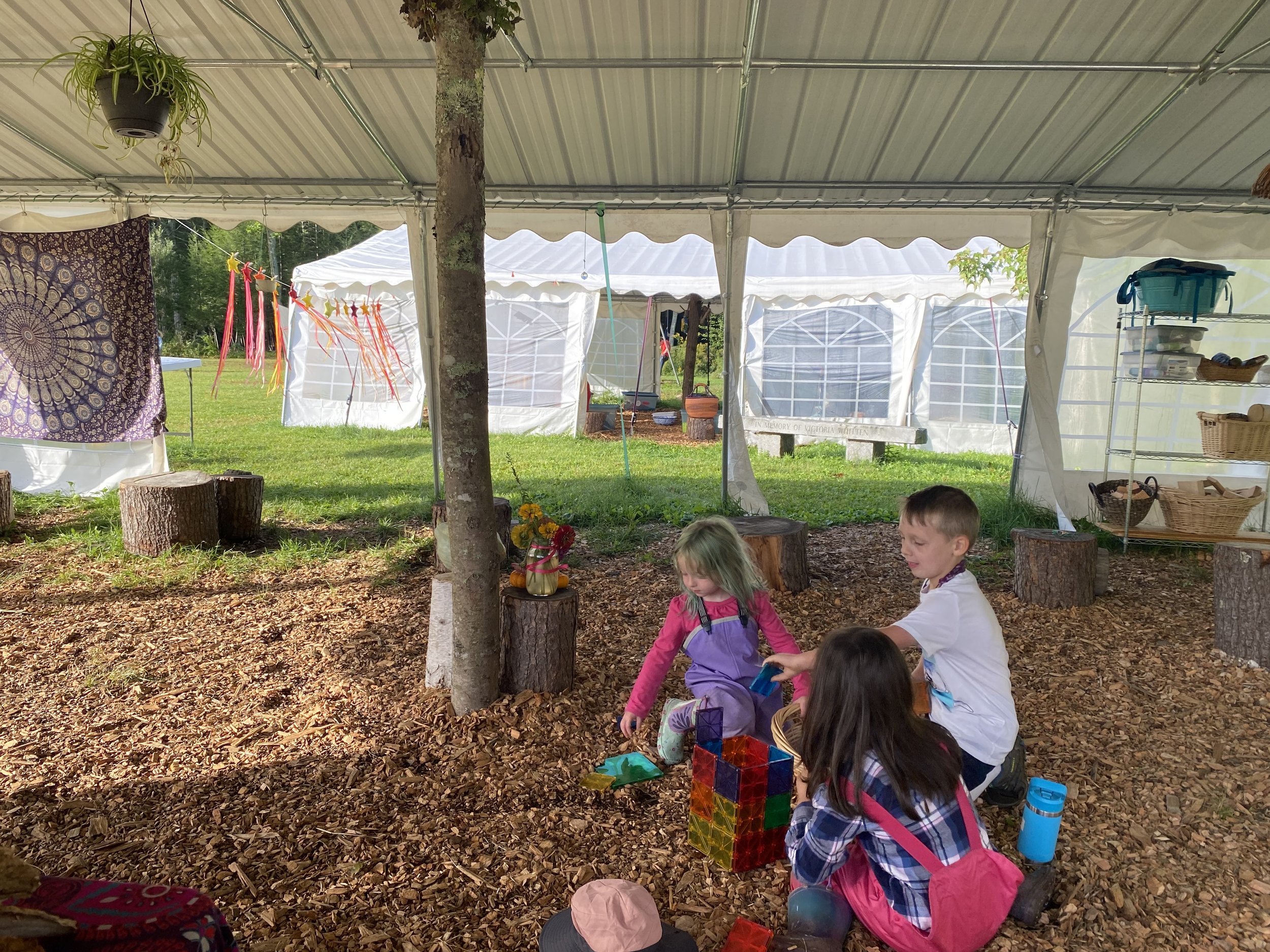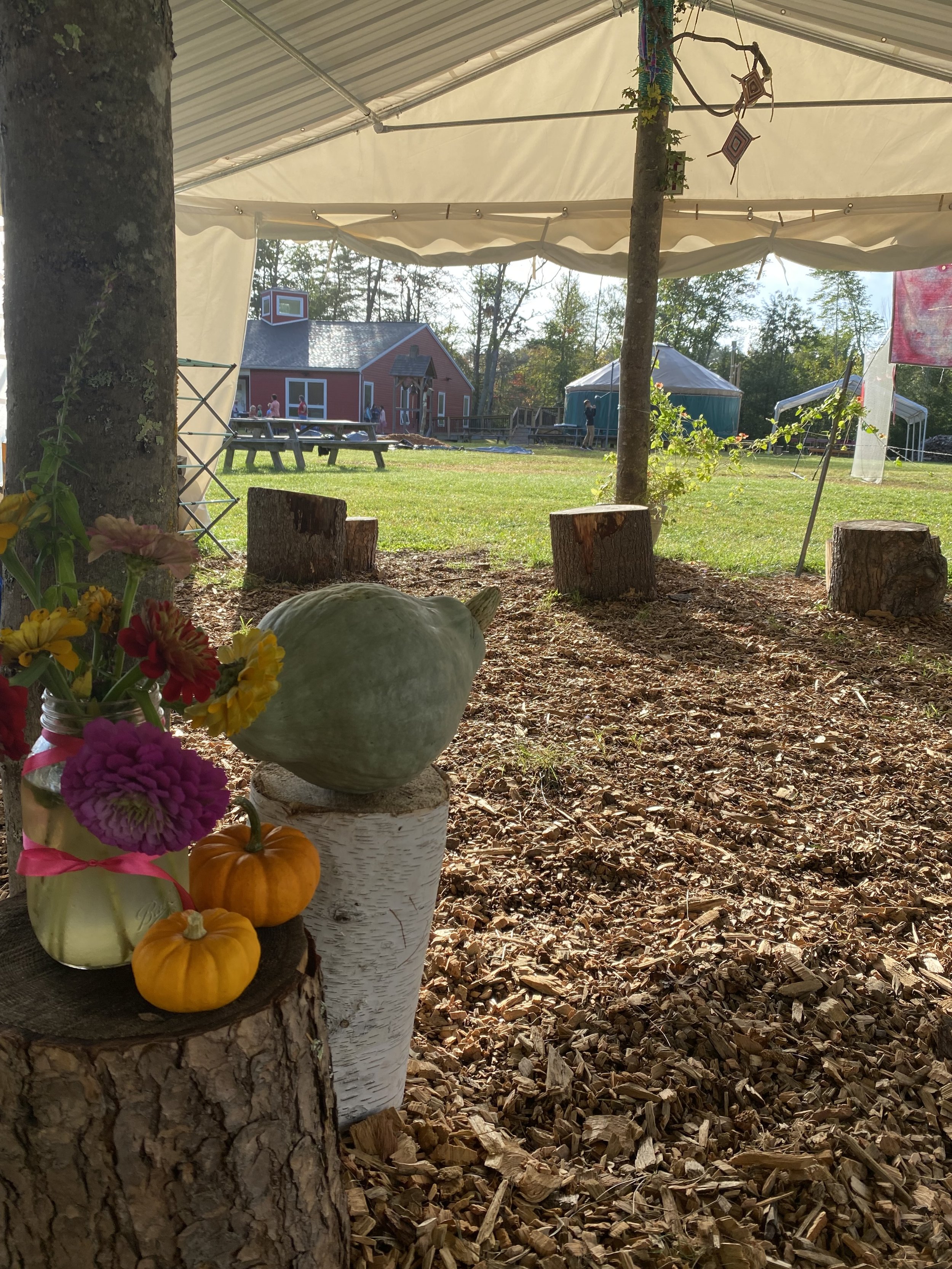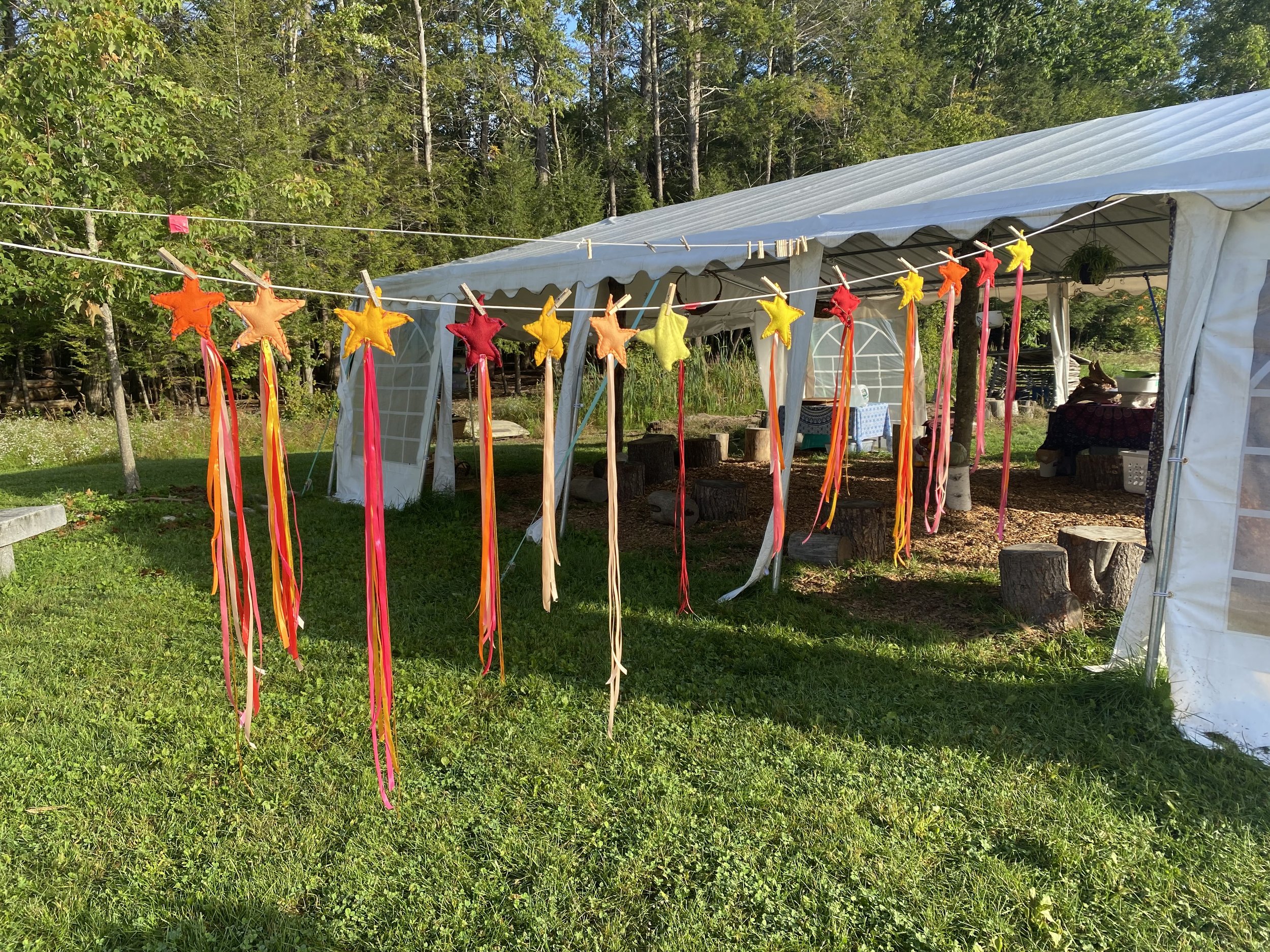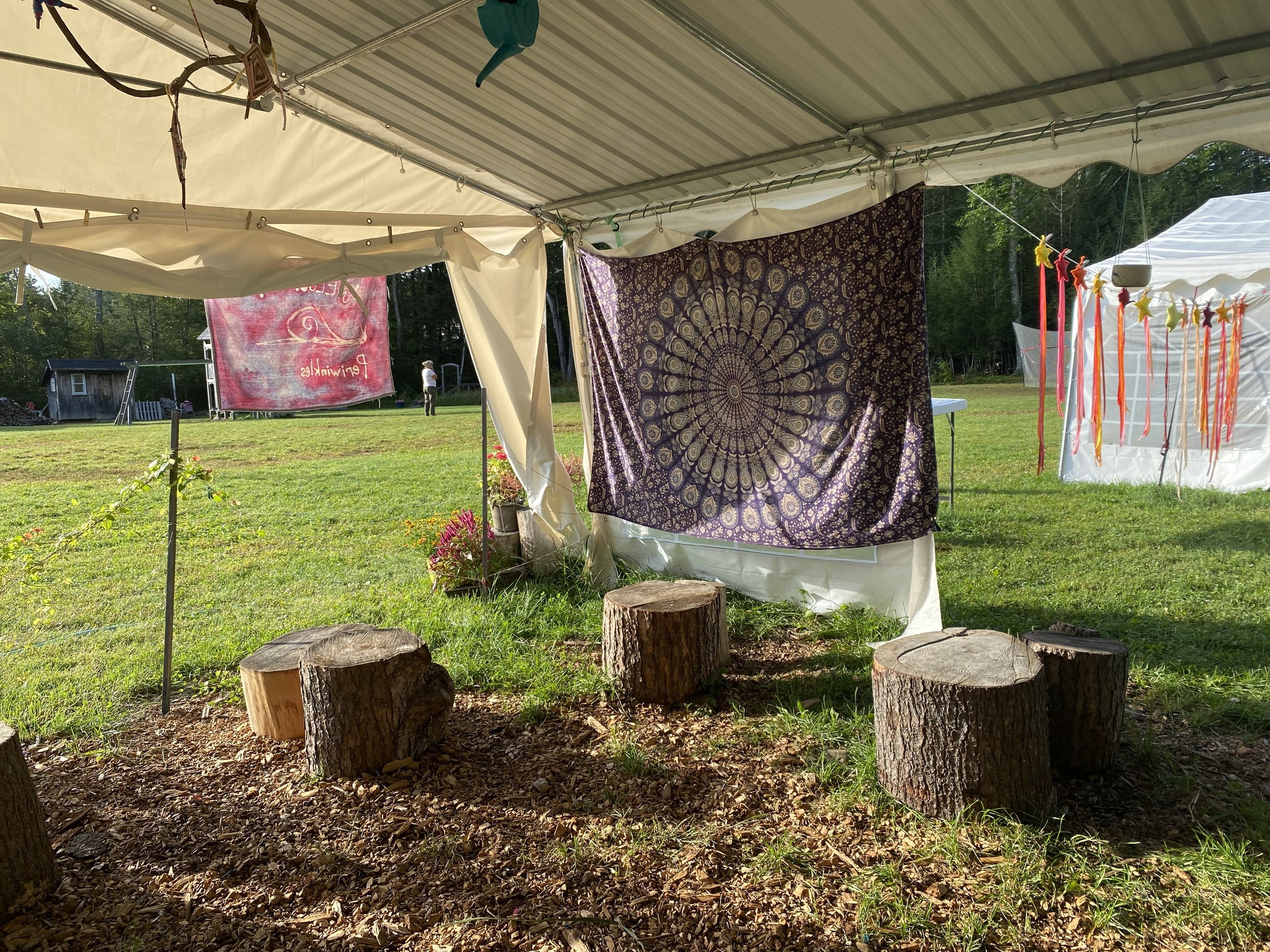OUTDOOR CLASSROOMS ARE GOOD FOR THE SOUL..and your health. OUR NEW REALITY AT SEACOAST WALDORF SCHOOL.
By Corrine Beaulieu
A thick bed of mulch and wood chips on top of packed earth, this is the floor. Grass grows all around and creeps in along the edges. Solid stumps become tables and chairs, enough of them for every student and teacher. Waterproof vinyl supported by sturdy metal frames and secure straps. Strong tin roofs and tall trunks of trees. Everything comes together to create a classroom.
It might not be typical or common but these outdoor classrooms are what kept the students and teachers of Seacoast Waldorf School on campus and together during a time when many schools had been forced to shut down or switch to remote learning. The tents which have been transformed into outdoor classrooms not only provide shelter from the elements but they also create a unique space for learning that extends beyond the physical space of the tent and into the acres of forest all around.
The woods offer ways of being that are very different from the ways of being in an indoor classroom. The forest allows for so much creativity, exploration and discovery. It calls for the use of all our senses and our intuition and it helps to create a sense of connection to something outside of ourselves.
Outdoor lessons, plenty of time in nature and connection to the natural world were already interwoven in Seacoast Waldorf School but the Pandemic forced everyone to further explore what a classroom was and what it could be.
In 1907 during the tuberculosis outbreak Doctors Mary Packard and Ellen Stone proposed the creation of open air classrooms to mitigate the transmission of tuberculosis and to improve the health and wellness of students. 65 Open-air schools were set up and created within two years and they proved effective in preventing the children from getting sick and in aiding in the children’s overall health and wellbeing.
Today science is just beginning to understand and unlock some of the many health benefits of nature. Pediatrician Dr. Nooshin Razani frequently prescribes nature to children and families because in both her personal life and in her work she has witnessed nature’s power to heal. Dr. Razani has seen that nature is an essential part of health and wellbeing for everyone, including and especially for children.
In her Ted Talk Dr. Razani explains that nature and time spent outdoors has countless benefits to our health and wellbeing. Nature helps to lower blood pressure, decrease stress and build healthy robust immune systems It helps to regulate breathe and heart rate. It fosters a sense of self and a connection to place. Nature supports creative and cooperative play as well as socialization, communication and coexistence.
Getting to know the natural world builds a bridge to other humans and other species. Connection with nature creates and develops an attachment to place which then fuels the inner motivation to not only have a personal relationship with the natural world but to also care for it.
In the kindergarten class we can do almost anything we do inside, outside as well. We eat meals, we gather in circle, we draw and do handwork. We build, we play, we sing and connect with one another. It doesn’t always look the same when we are outside and most things take a bit of adjusting and adapting but it is possible. Possible to be together, to learn and grow in a classroom with no boundaries and endless possibilities.
The outdoor campus of SWS is a vast world of discovery and imagination. Children grind wheat for bread day and churn butter by hand. Sometimes they paint or draw or knit. I’ve seen children work together, hand by hand, to carry fallen tree branches and trunks to add to forts and hideouts. Some children dig deep holes and carve out long rivers in the sandbox. Older students play soccer or tether ball. Others fall deep into imaginative lands to discover their inner strengths and selves.
Some students recite poems and songs. Others sing in chorus or run up and down the field in movement class. Children of all ages playing here, working here, learning and growing here and nature holding space for it all.
Sometimes at snack time in the Kindergarten class we have to take our warm wheat buns to the forest because the bees are too busy in our tent and the honey butter is too sweet. But even then we still thank nature for all of her gifts. Those busy bees become our friends and our teachers too. They have their work and we have ours. We learn how to observe the bees as they buzz and notice what happens if we just watch and wait. Being outside helps us to learn to coexist with everyone and everything and to respect nature and her gifts. We certainly do love our honey. And in turn nature helps us heal, gives us a safe and brave space to learn and teaches us so much about ourselves and the world around us.




